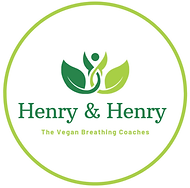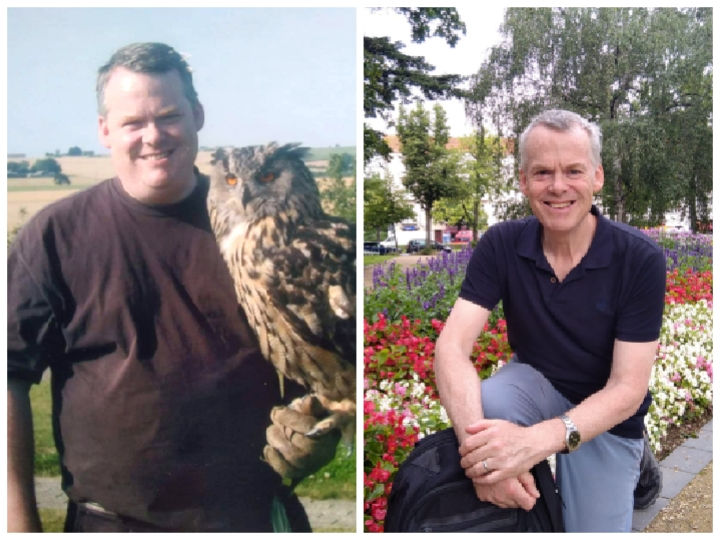Breathing in England
- Henry & Henry

- Nov 16, 2022
- 4 min read
When two breathing instructors travel away together (that’s the two of us, in case you’re wondering), it should be fairly easy to motivate each other and sustain the practice that we’d been doing rather well with up to our departure. The outcome, however, was mixed.
The journey from Berlin to London was by train all the way with just one overnight stop to break it up. Practising light breathing on the train is very easy, it’s also very relaxing as this type of exercise stimulates the vagus nerve, giving the message to the body that everything is fine and it’s safe to relax. Train journeys are often relaxing anyway but they’re not without their pressure points as we discovered when we couldn’t board our Brussels-bound train carriage at Cologne and had to either stand in a different 2nd class carriage (so close to the door that our faces would have been almost pressed up against the window), or upgrade ourselves to 1st class without permission or additional payment. We chose the latter, we even got seats and never once had our tickets checked. A first class seat is an ideal place to implement light breathing, stimulate the vagus nerve and really calm down.
Most of our travelling within England involved the unplanned switch from train to car as a result of rail strikes (which were called off at the last minute). Not surprisingly, the driver, Graham, didn’t get to do any breathing practice, but he did make an observation. Neither of us had so much as stepped inside a car for over 2 years, we just don’t need to in Berlin, so to be plunged into the experience of not just driving, but driving out of central London in an unfamiliar car and then up the M1 to York could have been stressful, but Graham was positively serene. Could the daily practice of slow, light breathing be a factor in that?
Graham wasn’t deterred from his practice of breath holding, despite the fact that he does this by holding his nose … in public and frequently whilst walking. He’s aiming to enhance his breathing efficiency for the jogging that he’s now doing with his mouth closed! Breath holding exercises train the brain and body more quickly than the light breathing exercises so progress tends to be faster.
I’d been doing these exercises too, as a means of reducing the breathlessness I’ve been experiencing since I had Covid, but breath holding exercises are up-regulating (in contrast to the down-regulating light breathing exercises) and they appeared to be putting a little bit too much strain on me, making heart palpitations more frequent so I put them to one side for this trip and focussed only on the reduced, light breathing exercises. I can’t recommend this type of exercise enough as a beautiful precursor to sleep. My sleep duration continues to be short compared with the rest of humanity, but I can only conclude that my sleep quality has improved. I was sleeping on average just 5 hours a night and yet on several days I walked in excess of 6 miles, sometimes at a normal pace, sometimes slowly, so by evening I was often tired but I was awake during the day and, perhaps most significantly, I felt confident in a way that I normally don’t. Poor sleep erodes my confidence, I’m sure I’m not alone in this.
We spent the last 3 days of our trip in London, having travelled by train from Nottingham. We’d timed it to coincide with VegFest at Olympia and we already knew it would be busy for us … good busy, meeting fellow members of the Plant-Based Health Professionals and Vegan Business Tribe who we’d only previously interacted with online. These were most definitely the most physically demanding days of our trip and left little time for even light breathing practice. I'm aware that I’ve dropped back a little in my progress. My comfortable breath hold time (a measure of sensitivity to CO²) has taken a bit of a dive compared with where I was before we left, and I can’t deny feeling a little bit disappointed. I could have been more steadfast in my practice, after all, I’m very keen to get better and get to a point where I too can exercise again without the breathlessness that currently precludes me from anything more strenuous than a walk.
For both of us, however, coping so well with a fairly demanding ‘holiday’ felt like a gift and enabled us to really enjoy the many highlights of the trip. We mostly sustained our respective breathing practices and we ate as well as we could, ensuring that we didn’t eat too late in the day or too much, which also impacts negatively on breathing. Keeping as much as possible to wholefoods was always likely to be supportive in multiple ways including how we breathe; processed foods stimulate over-breathing, making it faster which in turn feeds into any stress or anxiety, so we kept to fully natural foods where possible.
Throughout the week, but especially at Vegfest, we appreciated the interested and varied questions about breathing re-education; why wouldn't we? It's absolutely fascinating!
~ Annette Henry




)_20230830_134131_0000.png)



Comments